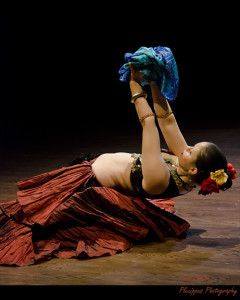This post is a smidge more personal than most of my blog posts here, but I figured this would be the best place for me to discuss my recent eating habits in a larger cultural context since it’s easy to link people to (moreso than my Facebook, which I tend to keep pretty private) and since, well, I do study this stuff as a scholar. Just not usually my involvement in it.
So for those who somehow missed the memo, I spent the last month doing the Whole30. It’s basically an eating plan that’s designed to help you figure out dietary allergens/triggers, reevaluate your relationship with food, and generally be healthier. This means that for the last 29 days, I consumed no
- Grains (wheat or otherwise, including quinoa and corn which aren’t technically grains but ya know)
- Dairy (except for ghee, which is okay for some reason)
- Sugar (except what’s found in fruit)
- Legumes (peanuts, soy, other beans… sad face, I’m a legume-lover!)
- White potatoes (sweet potatoes okay, thank goodness)
- Alcohol
- Added sweeteners/preservatives/flavor agents (things like MSG, sulfites, carrageenan)
What did I eat? A lot of locally raised protein (eggs, chicken, pork, beef, occasional seafood), a lot of fruits and veggies, and a lot of “healthy” fats (olives, olive oil, avocados, coconut products like coconut milk and coconut oil, and nuts/seeds in moderation). There’s a whole long description in the book It Starts with Food that accompanies the Whole30 about why we should be eating these things, why it’s silly to avoid fat, etc. I won’t get into that here unless people are curious about it.
I wasn’t expecting a miracle. I mostly decided to go on the Whole30 to support family members who were doing so, in an attempt to get a leg up on their health issues. Plus I occasionally like to go on a health spree, and this seemed like as good a health spree as any other.
My results? I slept better (which is a big deal, as I sometimes grapple with anxiety-induced insomnia). There were fewer nights on average that I had trouble falling asleep in the past month. I had way fewer stomach-aches than usual. I think I’d kinda gotten used to them and forgotten that it’s not normal to have stomach-aches on a daily basis (again: stress is a factor, and perhaps some mild dietary allergen/trigger that I hadn’t pinpointed yet because it wasn’t major enough to cause a reaction that was serious).
Interestingly, I couldn’t kick the afternoon snack habit, though I did manage to ditch the afternoon sleepies. I used to get these bizarre bouts of fatigue between 3-5pm most days of the week where it was all I could do to keep my eyes open. It didn’t seem to be related to sleep deprivation, so the best I could pinpoint was that maybe intense fatigue was a symptom of my seasonal allergies? But now those sleepy times are gone, so I guess it was something dietary. You’re not “supposed” to want or need snacks on the Whole30, but I found myself needing them. Maybe it has to do with the fact that I work out at least once a day, sometimes twice. Teaching dance and directing a troupe keeps me pretty busy, I guess.
There were times when I felt I wasn’t getting enough nourishment, possibly because I have trouble eating tons of animal protein. I tend to default to vegetarian when left to my own devices, so being told that I have to get protein from animal sources (rather than relying on dairy, soy, or legumes) was a tad frustrating. Still, I feel I made the best of the situation. I will be very happy when I can reintroduce these foods and rely on animals less (for one thing, it’s expensive, since I prioritize local and/or organic meat).
I definitely feel/look leaner, though I haven’t weighed myself yet (you’re not supposed to weigh yourself during the 30 days). I didn’t miss most things that much. I would get occasional cravings, especially during my period, but otherwise I felt fine. I guess I’m used to being disciplined… I ran a marathon and completed a Ph.D., after all!
Do I really buy the rhetoric of our bodies having a “reset button” that Whole30 allows you to push? Not necessarily. My experience was in some ways similar to that of their projected timeline, and other ways quite different. I didn’t get the sugar hangover/headache/withdrawal symptoms that so many people do, possibly because sugar hasn’t been a part of my daily diet for some time. I already ate pretty healthy, so I wasn’t really expecting drastic results. I do feel better, though, and I think that people who don’t normally cook every meal and know their way around food labeling practices would really benefit from giving Whole30 a shot. Although, as this one blogger describes her Whole30 experience, the restrictive tone of the program can be off-putting to some.
Social scientist brain is encouraging me to note the effects of this eating plan on my social life. I’ve been in pretty serious hermit mode with the beginning of the semester, so I haven’t had much social life to speak of. The handful of times that I’ve been out at bars, I’ve been content sipping soda water with some lime squeezed in. I’ve baked desserts and bread for people and watched them eat it without feeling too left out (though I don’t think I’d want to continue that practice indefinitely… I miss being able to taste what I bake!). It’s been a bit of a struggle to make sure I’m cooking good meals for my household, as my partner likes a lot of the foods that I haven’t been eating… but I think we reached a manageable compromise. Anyway, it’s easy enough for me to throw together some orzo, butter, and parmesan as a side dish and then just not eat it.
I’ve gotten some… hm… less than supportive reactions from people around me, though. My eating has been called “strange” and someone has said that I look like I’ve “withered” away. People, I am dancing 6 days a week, doing yoga 2-3 days a week, and doing strength training 2-3 days a week (with some hula-hooping thrown in, too). I couldn’t do all this stuff if I was wasting away. With the exception of days where I literally have trouble putting enough calories in my mouth to sustain my level of activity, I’ve felt pretty energetic and good throughout most of my Whole30.
The accusation of eating “strange” food stings a bit, but oh well. If eating mostly plant matter and animal protein is strange, I shudder to think what passes for normal in this culture. And here we reach my food soapbox, with me sounding all prejudiced and judgey and stuff. I don’t like to come across like that, but I have some pretty strong beliefs about food and health, and most of them go in the exact opposite direction that mainstream American eating practices do (I know that there are a lot of identity issues here, such as class and ethnicity, that make it hard to get access to “healthy” foods, or that do not put high value on them in cultural context – so I don’t mean to sound as though all those people making “bad” food choices are ignorant or uneducated; I know there are a lot of social forces at work here, which I don’t have the space to address in a single blog post, so I’ll just note that they exist and move on).
And here’s where the personal and the social intertwine: I’ve noticed from my personal experiences that people don’t like being confronted with choices that are radically different than their own. This also tallies with my cultural studies, where difference is stigmatized and punished. When someone eats really, really healthy, it makes people who eat unhealthy feel self-conscious. I don’t view my dietary choices as being inherently judgey, but people tend to think that I’m judging them when I eat healthy and they don’t. This is related to the larger issues our culture has with food: we have a twisted relationship with food, where we have received so many conflicting messages with it that we don’t know whether it’s nourishment or consumer product, celebration or deprivation, something to be endured (especially if it’s healthy! oh the torture!) or something to be enjoyed. I’ll go Freudian for a moment and toss out the thought that there’s a lot of projection going on here: people project their own insecurities about food (and, attendantly, body image) onto others, since they don’t have good ways of communicating about and coping with the conflicts about food in their own lives. Or not, I could be wrong about this… but if you’ve ever made a change for the healthier in your life and received a bunch of push-back from people who haven’t made the same commitment to being healthy, you’ll know what I mean.
(on the note of push-back, my friend Adam just posted a link to this great post about feeling like an outsider due to the desire to eat healthy… yep!)
I’m going to wrap this up, and discuss weight and body image in a subsequent post. So I’ll go ahead and publish this now, on the morning of Day 30 of my Whole30, and return after I’ve weighed myself and thought about that a bit.


